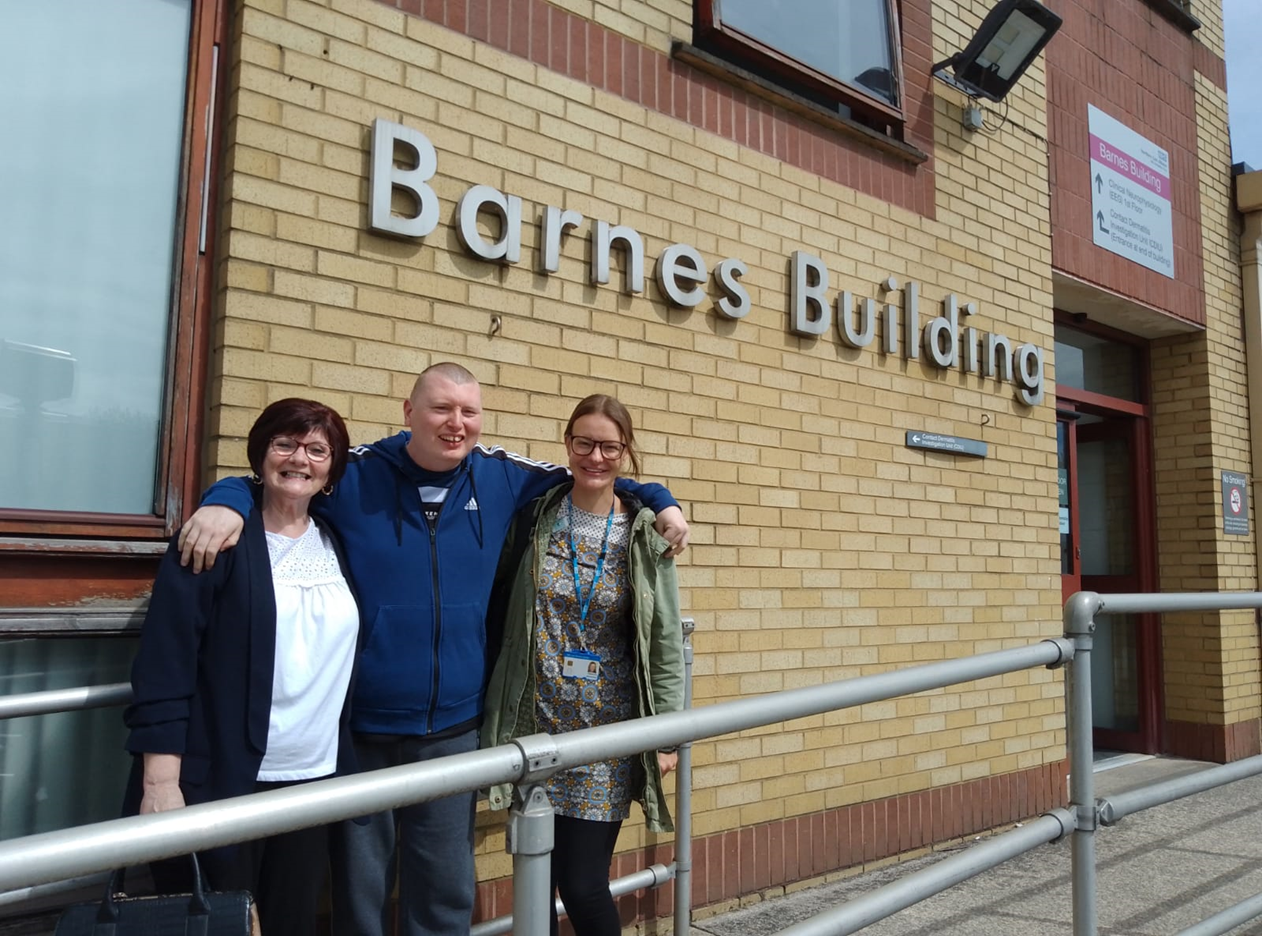Published on: 17th October 2024
 A mum from Bury has praised our adult learning disability for helping her son to attend vital medical appointments.
A mum from Bury has praised our adult learning disability for helping her son to attend vital medical appointments.
Craig Robinson, 41, is autistic and has a learning disability. He found health appointments involving blood tests, vaccinations, or body scans very difficult and would have severe anxiety before and after attending.
Over the past year, Craig has been supported by Bury adult learning disability team to overcome these challenges.
Community learning disability nurse, Jade Buckley, worked with Craig to make him feel more comfortable around healthcare workers.
Jade worked closely with his mother to learn more about Craig and find effective ways to build his confidence.
Jade explained: “We role played scenarios as doctors and nurses, and with the use of props to demonstrate how blood tests are taken, we built a trusting relationship with Craig over time. With the support of his family, he could eventually tolerate touch from myself, and then others, and allowed us to pretend to take a blood test.”
They arranged for a blood test to be taken at home, which avoided stress around traveling to a clinic or sitting in the waiting room.
By being in a familiar space, surrounded by people he knows well and trusts, Craig was then able to have his first blood test. The team and his family were delighted, but knew they had more work to do.
Craig was diagnosed with epilepsy at a young age and needed to have an electroencephalogram test (EEG) on his brain to determine if more medication was needed to help with his seizures.
Jade explained: “We knew there had been a previous attempt which was quite traumatic for Craig as the test involves a number of small metal discs being placed directly on the scalp, which are then connected to lots of wires.”
She then came up with a creative idea to help Craig and crafted some stickers and fake wires at home. She then used Craig’s favourite teddy bear to practice on.
Jade explained: “For four weeks we worked with the teddy through role play. We put the stickers and wires on the teddy’s head and let Craig feel them and apply them himself. This helped to get him used to the feel of them and understand more about what was going to happen during his scan.”
“It was so important to get this right, as we knew that the only alternative was to have Craig given anaesthetic to conduct the scan, which could result in further trauma and fear.”
Jade worked with the hospital to put reasonable adjustments in place. She arranged to have a longer appointment time and avoided having to wait in the reception area, as well as having his mother and his carer in the room.
During the scan, they helped to put Craig at ease by singing, dancing and playing games. But their support didn’t stop there. Davina Parry, occupational therapist in the Bury adult learning disability team, had also been working with Craig to help him become more comfortable in crowded public places.
Davina supported Craig to feel safer and able to enjoy his experience outdoors and to take part in exercise activities.
They went to Jump Space, a local sensory centre for people with learning disabilities, where Craig enjoyed trampolining alongside qualified trainers and coaches. Over time, his balance and coordination improved.
Craig’s mother, Kate King, has given huge thanks to the team. She said: “By keeping us involved and asking for our input at every stage of this process, we managed to find the right way to help him and it’s worked so well. I’ve seen a remarkable difference in Craig so far.
“He used to be nervous going outside and being in crowds, especially because of the noise, but because of their help he can now enjoy himself and the experience.
“He’s able to go to the doctors and even lets them check his temperature and give him drops for his ears, which he would never have done before. I cannot thank them enough.”